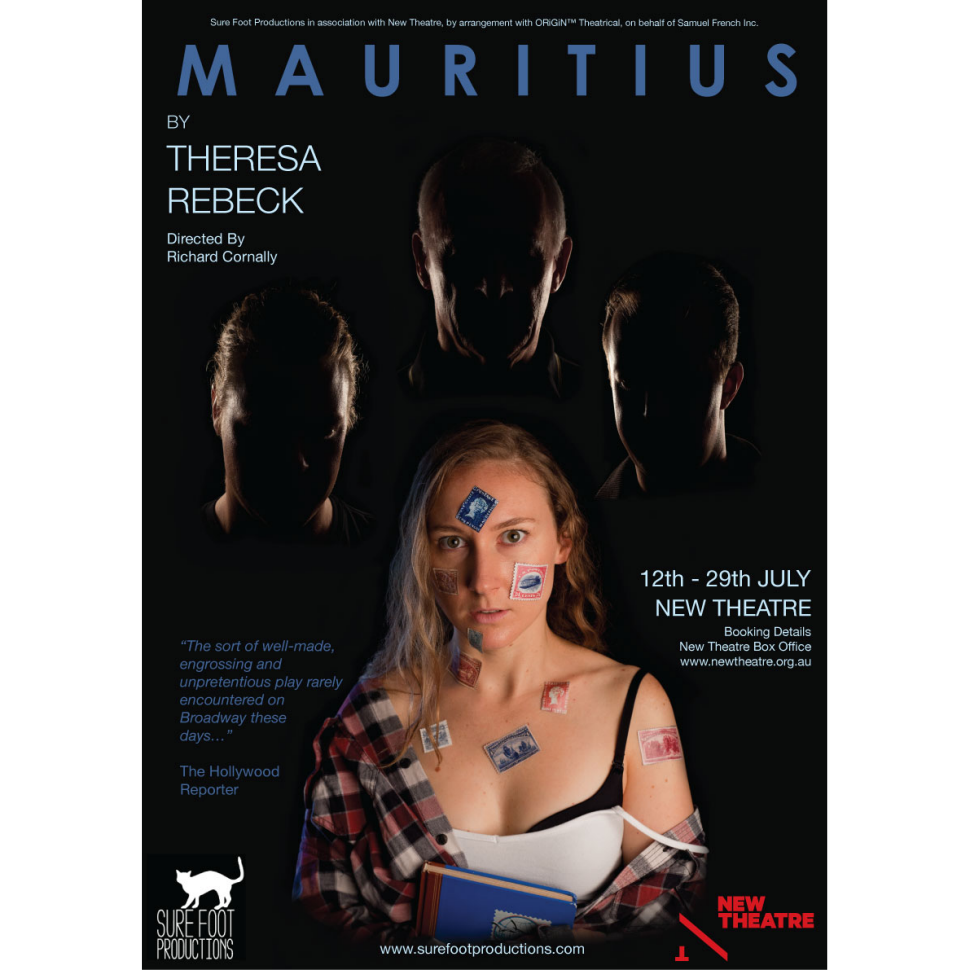The Mauritius Post Office stamps from 1847 are amongst the rarest in the world. There’s an orange-red One Penny and a deep-blue Twopenny. It is likely that only around 500 of each stamp were ever sold. They’re prized not only because of their rarity and their early dates but also because of their primitive character as local products of a far-flung British colony.
Today it’s generally agreed that only 15 examples of the One Penny have survived (including two unused) and 12 of the Twopenny (including four unused). Most are now in permanent museum collections. Prices are astronomical: in 2011 one sold for US$1.67 million.
So if you’re a successful Broadway playwright looking for an object of great value that might be found in the belongings of a family of two sisters down on their luck — what better than a pair of Mauritius One Penny and Twopenny stamps in grandfather’s old stamp collection? Once word gets out of the discovery, three shady philatelists encircle the two sisters, keen to get their hands on the stamps. That’s the premise of the play Mauritius, by award-winning US writer Theresa Rebeck, being brought to the stage in Sydney this July and produced by Sure Foot Productions.
The play’s director, Richard Cornally, says: “The discovery of the romantic history of philately and the special details that make one stamp priceless and another worthless thrilled me. It seems that what is valued most about a stamp is the story behind it. I want to share that thrill with our audience. Although this is a story about stamps, what it really explores is how far people are willing to go to own something so coveted and so rare.”
Mauritius is being performed at the New Theatre in Newtown from 12 to 29 July. Tickets are available at www.newtheatre.org.au/mauritius/


